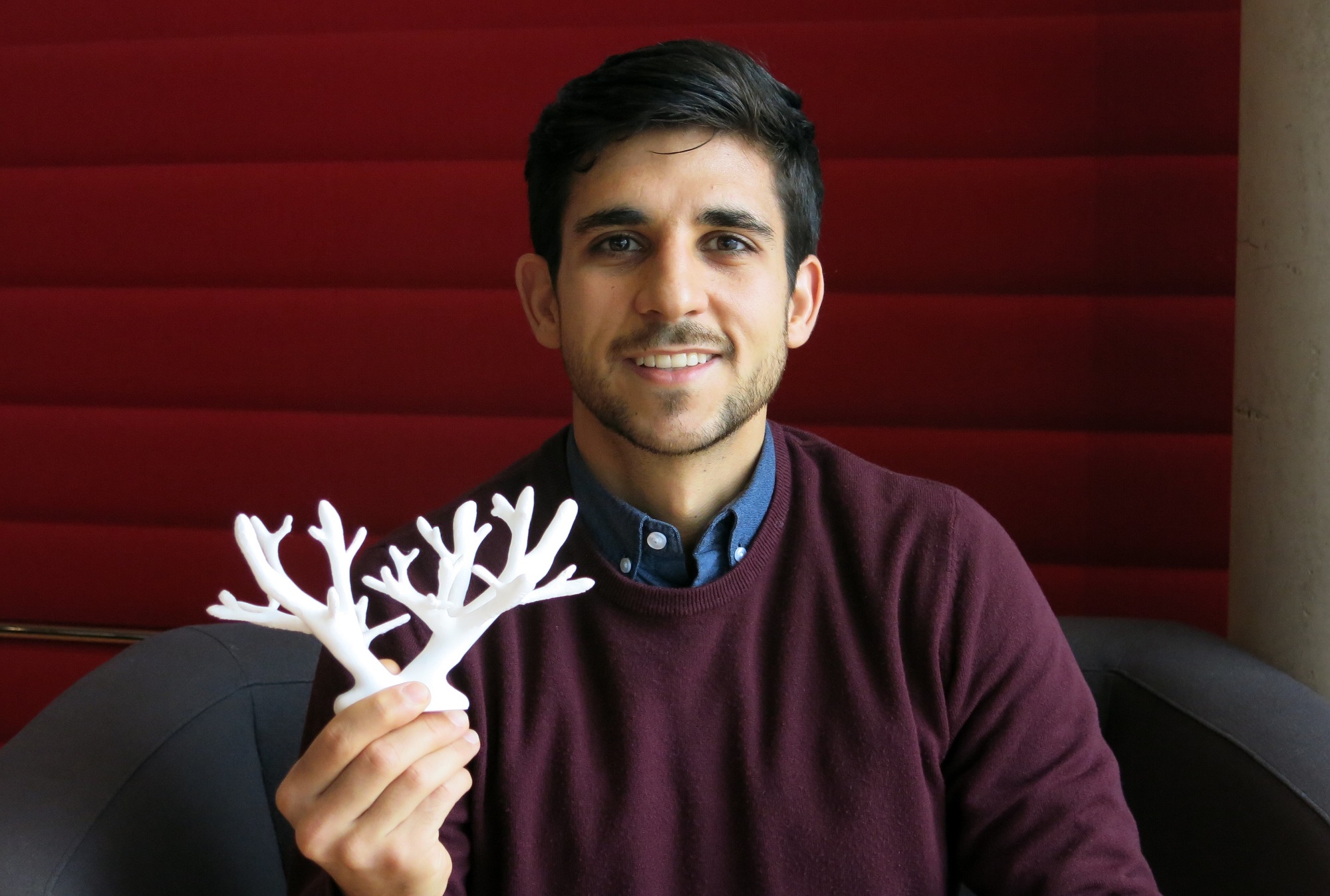Watching the decline of marine ecosystems inspired master’s student Jaime Ascencio to create a way to build artificial reefs from sand or mud to protect coastlines.
(Photo: Heather Montague)
“Since I was a kid, I wanted to be a marine biologist because I’ve always been passionate about marine life. During my lifetime, I have noticed that the ecosystems I used to see when I was a kid are decreasing quite quickly. So I really want to do something to change that. Before coming here, I worked for two years in Mexico and I saw what coastal engineers were doing and I knew I wanted to be one of those guys.
Now I’m studying hydraulic engineering with the specialisation of coastal engineering. In addition to the master’s courses I also wanted to improve my knowledge of entrepreneurship and innovation. So I followed the track in entrepreneurship where you take some courses in things like business, finance and market research. During those courses, there was a pitch competition that I entered with another teammate. We ended up getting a money award to apply for a patent for our technology. Right now, the idea is patent pending. Since then, we have been pitching our idea at other contests and we’ve been getting a lot of attention, so it’s going really well.
We started a company called Reefy, and basically we are using something like Lego blocks that can be assembled underwater to create a new reef that also protects the beach. With this concept, we want to change the environmental impact that marine construction has from negative to positive.
‘It’s a risky decision doing something like this’
In Mexico I was working in a similar market and I saw that the clients were asking for something that was more ecological that could also protect the beach from erosion and flooding. That’s why I wanted to learn more about this topic here. There are lots of options on the market, but I concluded that they are not yet solving the urgent need to bring back reef ecosystems and protect our coasts at the same time. I think that at this tipping point where we are now with nature, we need change. So I decided that trying to create something on our own might be faster.
I’m doing this with a partner who finished his studies last October and he’s now working full time on this project to try and upscale it as soon as possible. It’s a risky decision doing something like this because you’re always uncertain about what will happen, but this is my passion.
I plan to finish my master’s this summer. Deciding what to do after that is difficult, but I think staying in the Netherlands is the right thing for me. If I want to make a bigger impact in the world of water, I think the Netherlands is the best place.”
Who are the people who work and study on campus? We meet them in Humans of TU Delft.
Do you want to be featured in this series? Or do you know someone with a good story to tell? Send us an e-mail at humansoftudelft@gmail.com
Heather Montague / Freelance writer



Comments are closed.